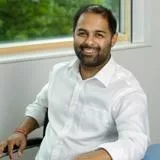Please note: this event has passed
Recent technological advances from fields as diverse as gene and protein engineering, optics, photonics, chemistry, materials science, nanoscience, electrophysiology and neuroimaging have helped propel forward our understanding of the genetic, molecular, and physiological mechanisms that contribute to the development and function of the brain. During this two-day virtual conference, we will bring together leading experts at the forefront of neurotechnology development to discuss the cutting-edge innovations changing the face of neurobiological research from molecules to cognition.
This symposium will focus on neurotechnologies for neuroscience research, mental health and neurology applications, covering advances in molecular, optical, electrophysiological and neuroimaging approaches. Applications (and ethics) of these technologies for treatments of a wide range of mental health and neurological conditions, including movement-related disorders, spinal cord injury, epilepsy, Parkinson’s, depression etc. will be discussed.
By providing an interactive and networking platform to encourage exchange of ideas with leading researchers, medical and industry professionals, the mission of this symposium is to promote exciting developments and advances in neuroscience and neurotechnology throughout the neuroscience research community.
Day 1
- Charlie Winkworth-Smith, Knowledge Transfer Manager Technologies, UK, An overview of the UK neurotechnology landscape
- Michael Nitsche, Head of Department Psychology and neurosciences, Leibniz research centre for working environment and human factors, IfADo, Germany, Optimization of trans cranial electrical stimulation
- Paul Shotbolt, Consultant Neuropsychiatrist, Maudsley Hospital, Senior Lecturer, King’s College London, UK, Virtual Reality and Brain/Machine Interface applications in Functional Neurological Disorders (FND)
- Lucia Valmaggia, Reader in Clinical Psychology and Digital Mental Health, Head of Virtual Reality Lab, King’s College London, UK, Virtual Reality in Mental Health
- Ashkan Keyoumars, Consultant Neurosurgeon, Professor of Neurosurgery, King's College Hospital, UK, New frontiers in deep brain stimulation
- Vivienne Tabar (ipcs Feng Zhang (CRISPR) – 4, Chair, Department of Neurosurgery, Theresa Feng Chair in Neurosurgical Oncology Memorial Sloan Kettering Cancer Center, New York, USA, Stem cell-based therapies for Parkinson’s disease: from the bench to the clinic
- Ivo Lieberam, Reader, Centre for Developmental Neurobiology, King’s College London, UK, Stem cell-based models of neuromuscular diseases
- Eric Dyne, Graduate PhD Research Student, Kent State University, US Nanoparticle Mediated Thermal Disruption of Fibrillary Beta-Amyloid Protein, Implications for Neurodegenerative Disease Therapeutics
- Jack Price, Professor of Developmental Neurobiology, King’s College London, UK, Pluripotent cells and the future of clinical neuroscience
Day 2
- Ed Boyden, Professor, Departments of Brain and Cognitive Sciences, Media Arts and Sciences, and Biological Engineering, Y. Eva Tan Professor in Neurotechnology, McGovern Institute and HHMI, USA, Tools for Analyzing and Repairing the Brain
- Dustin Taylor, Kent H Smith Professor II of Biomedical Engineering, Director, Human Fusions Institute (HFi), Case Western Reserve University; Associate Director, Cleveland Advanced Platform Technology Center, Cleveland - Louis Stokes Dept. of Veterans Affairs Medical Center, USA, Human-Technology Symbiosis with Neurotechnologies: Create a Thriving, Just, and Connected World



